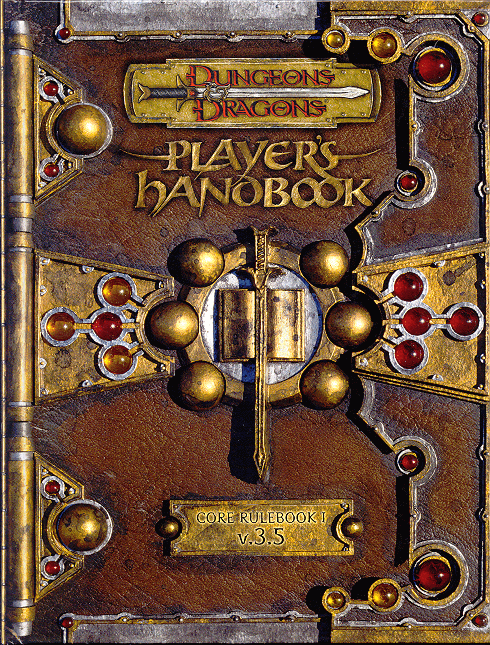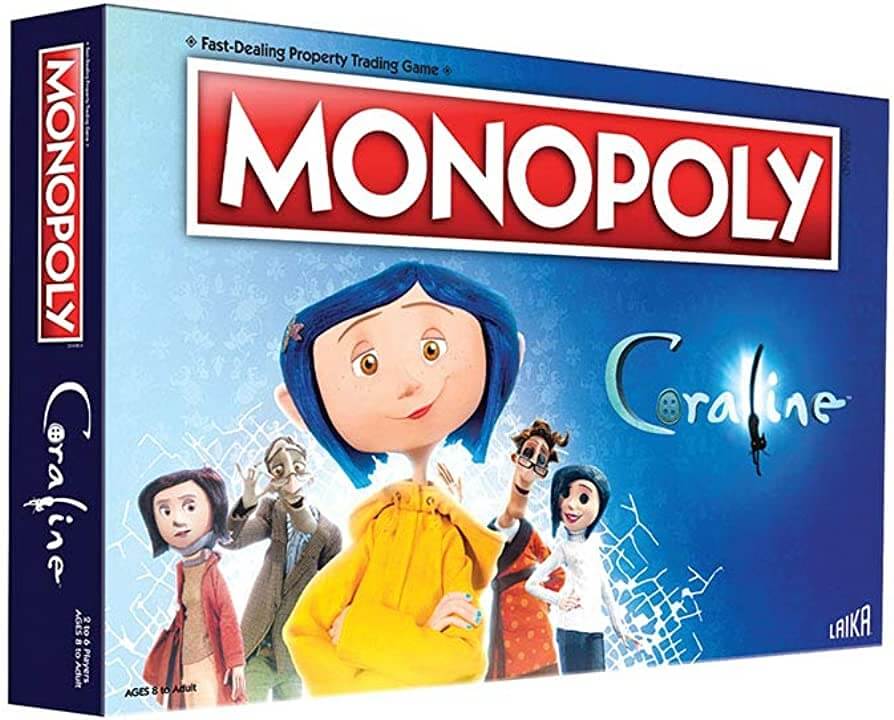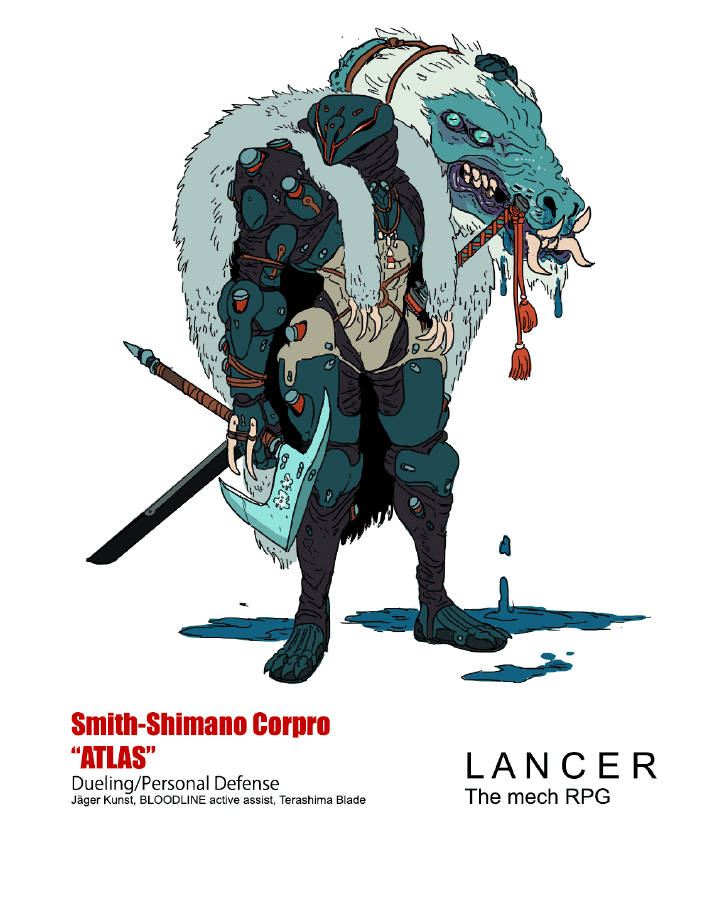
Dungeons & Dragons 3.5 Edition: Player's Book
"Dungeons & Dragons 3.5th Edition: Player's Book" is the gateway to a world of epic adventures and memorable characters. Released as part of the popular evolution of the fantasy RPG, this book is a true guide for anyone wishing to embark on the journey of creating heroes and exploring dark dungeons. In this book, you'll find a wealth of information on how to build and develop your character, including classes, races, skills and much more. Each page gives you the tools you need to shape your character according to your vision, allowing you to connect more deeply with the unfolding narrative. One of the best parts of this edition is the way the rules are presented in a clear and accessible way. Even if you're new to the game, the detailed explanations help demystify what may seem complicated at first. I remember when I played for the first time; the Player's Book was essential to understanding the mechanics while I had fun creating my first character, a cunning elf ranger. In addition, "D&D 3.5" also includes tips for playing your character and getting involved in game sessions, making the process even more immersive. With this book, it's not just dice and rules; it's building stories that will stay with you and your friends for a long time. In short, "Dungeons & Dragons 3.5th Edition: Player's Book" is more than a manual; it's an invitation to a universe of creativity and collaboration. If you're ready to face dragons and discover treasures, this book is what you need to take the first steps on your epic journey.Artists: Scott Fischer; Jon Foster
Designers: Richard Baker; Andy Collins
Date: 2003
Note: 7.8 [https://ludopedia.com.br/ranking?tipo=rpg]
Mechanics: Cooperative, Push your luck, Players with Different Skills, Team play, Movement in Grids, Storytelling, Paper and pen, Data Scrolling, RPG
Topics: Adventure, Fantasy, Literature, Fighting / Martial Arts, Medieval, Police
Table of Contents
- How to Play
- Tips for playing
- Game mechanics
- Game components
- Additional Information
OBJECTIVE OF THE GAME
Tips for playing
Here are some tips for doing better in the game Dungeons & Dragons 3.5 Edition: Player's Book:
- Get the class right. Think about the style of play you like and choose a class that matches it. If you prefer direct combat, a Warrior might be ideal. For magic and mystery, consider a Sorcerer or Wizard.
- Talk to your Master. Before creating the character, discuss the style of the campaign with the Master. This can influence class, race and skill choices.
- Invest in useful skills. Regardless of class, skills such as Observing and Listening are always valuable. They help you avoid unpleasant surprises in the game.
- Always have a combat strategy. Think about how your character can contribute effectively in battle. It could be direct damage, supporting allies or controlling enemies.
- Don't neglect the role of initiative. Acting early in combat can make all the difference, so consider improving your initiative bonus.
- Keep an eye on your resources. Manage your potions, scrolls and other consumables well - they can save your ass in difficult situations.
- Improve your interpretation. Get involved with your character's story. The more you connect with the persona, the more immersive and fun the gaming experience will be.
- Explore unique skills and talents. Look for creative ways to use your skills. Sometimes the most thoughtless solution can be the most effective.
- Avoid being a 'lone wolf'. Teamwork is crucial in D&D, so always think of strategies that benefit the whole group, not just your individual character.
- Learn from experience. Each session offers new lessons and adjustments for your character. Pay attention to what works well and what can be improved over time.
Video about the game
GAME mechanics
- Cooperative - In D&D 3.5, cooperation between players is essential. Adventures are built so that players work together, each contributing their unique skills to overcome challenges.
- Test Your Luck - The game contains moments where decisions can force the player to take risky actions. Betting big can yield big rewards or disastrous consequences, all guided by the roll of the dice.
- Diversified Skills - Characters have different skills and talents that must be used strategically. From brute force to magical cunning, each player has a unique role in executing the plan.
- Teamwork - D&D isn't just about individuality. Combinations of skills between group members can open up new possibilities and strategies during quests.
- Grid Movement - Character positioning is vital, especially in combat. Movement is done on a grid of squares, allowing a clear view of distances and attacks.
- Narration - The Game Master guides the story, describing scenarios and events. The narrative is dynamic and adaptive, ensuring that each session has a unique and captivating storyline.
- Paper and pen - Classic annotation elements are used to record the progress, inventory and skills of the characters, complementing the board game experience.
- Data Scrolling - Dice, especially d20 dice, are the heart of randomness in D&D. They determine the success or failure of actions, strongly influencing events in the game.
- RPG - Role-playing is the core of D&D 3.5, with players playing their characters, making decisions based on their personalities and histories, and contributing to the overall plot of the campaign.
Game components
See all the items in the game below Dungeons & Dragons 3.5 Edition: Player's Book:
- Adventurer's Handbook
- Player's Compendium
- Basic Rules Guide
- Adventurer's Rule Book
- Player Rules Compendium
- Player's Handbook
- Adventurer's Guide Book
Additional Information
- Ludopedia link: https://ludopedia.com.br/jogo/player-s-handbook-d-d-3-5e
- Link Tabletopia:
- Amazon Brazil link: Comprar Dungeons & Dragons 3.5a. Edição: Livro do Jogador
- Amazon USA link: Comprar Dungeons & Dragons 3.5a. Edição: Livro do Jogador


